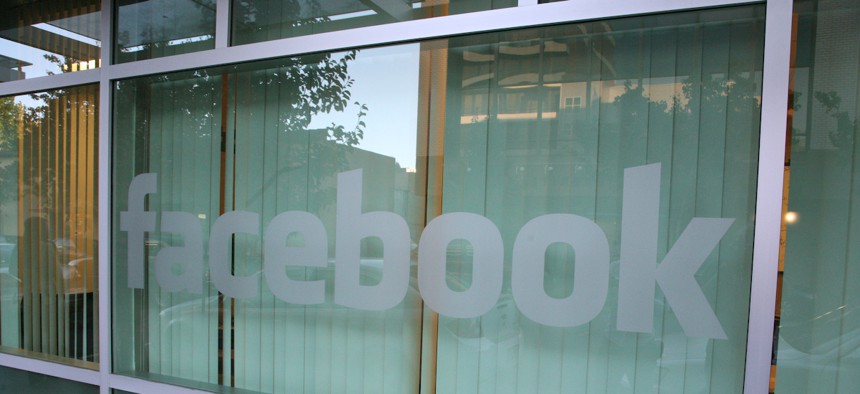Facebook Failed to Notify Federal Social Media Community about Data Leak

Flickr user laughingsquid
A programming error allowed users to see other users’ confidential email addresses and phone numbers.
The majority of agencies, as of late Sunday, had not been alerted by Facebook to a newly-discovered security risk on the social network used governmentwide, federal officials told Nextgov.
A database error accidentally exposed email addresses and phone numbers of 6 million users to other Facebook users, the company disclosed late Friday in an online message. Essentially, members who downloaded their Facebook page histories were able to see confidential phone numbers and email addresses of other account-holders.
Thousands of federal Web managers and social media specialists are on Facebook to expand agency public outreach, government officials said on Sunday. The social titan did not respond to multiple inquiries to ascertain how many federal employees maintaining agency Facebook pages might have had their personal data compromised.
Friday's online message stated, “When people upload their contact lists or address books to Facebook, we try to match that data with the contact information of other people on Facebook in order to generate friend recommendations."
The company had been storing suggested friends' details in users' histories. “As a result, if a person went to download an archive of their Facebook account through our Download Your Information (DYI) tool, they may have been provided with additional email addresses or telephone numbers for their contacts or people with whom they have some connection," company officials stated.
The flaw, which the social network learned about earlier this month, had existed since last year, according to news reports.
Aside from being angered about the exposure of private information, some users are outraged that Facebook has been harvesting this data in the first place, security analysts observed. The affected users had not registered their phone numbers and email addresses with Facebook. The company had been obtaining those details from friends' address books.
"What the revelation means is that Facebook has much more information on us than we know, it may not be accurate, and despite everyone's best efforts to keep Facebook from knowing our phone numbers or work email address, the social network is getting our not-for-sharing numbers and email addresses anyway by stealing them (albeit through 'legitimate' means) from our friends," tech pundit Violet Blue wrote in a ZDNet column.
She added that the incident “creates a scenario of horrifying possibilities for any woman who has [begun] to experience harassment, abuse or stalking by an ex within the past year," or "anyone being maliciously stalked and harassed" by someone "they may have accidentally friended over the past year."
According to the company, an unaffiliated security researcher discovered the bug and informed Facebook through a so-called bug bounty program that offers at least $500 -- there is no payment cap: "each bug is awarded a bounty based on its severity and creativity.” Google, Mozilla and most-recently Microsoft have begun paying hackers, researchers and other good Samaritans to report previously-undetected vulnerabilities on Web services.
On Friday, Facebook officials stated they "immediately disabled" the history download feature, fixed the issue, and restored the tool within one day of hearing about the defect. No other personal or financial data was involved, and developers as well as advertisers did not have access to the tool, they added. Company officials stated they "currently have no evidence" anyone took advantage of the mistake for malicious purposes. Nor have officials seen anomalous behavior on the site to suggest wrongdoing.
Facebook officials downplayed the privacy lapse, but admitted they regret the episode: "Although the practical impact of this bug is likely to be minimal since any email address or phone number that was shared was shared with people who already had some of that contact information anyway, or who had some connection to one another, it's still something we're upset and embarrassed by, and we'll work doubly hard to make sure nothing like this happens again.”
(Image via Flickr user laughingsquid)






